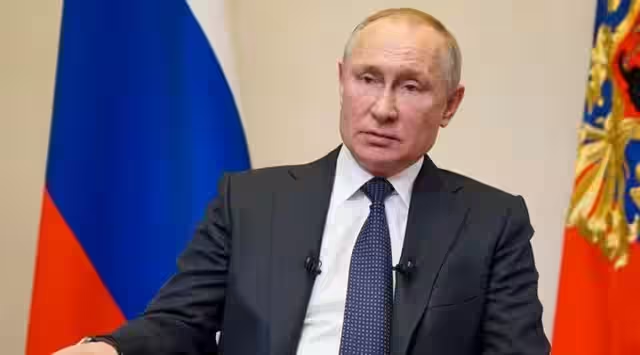In a surprising turn of events, Russian President Vladimir Putin has announced his decision not to attend the upcoming G20 Summit in Delhi, India. The Kremlin has indicated that the move is a deliberate shift in focus toward the ongoing Ukraine crisis, reflecting Russia's heightened concerns in the region.
The G20 Summit, a platform for world leaders to discuss and collaborate on global economic issues, was anticipated to bring together heads of state from the world's major economies. However, Putin's absence has cast a shadow over the event, redirecting international attention to the unfolding developments in Eastern Europe.
The decision comes as tensions between Russia and Ukraine have escalated, with renewed clashes in disputed territories and concerns about the potential for a large-scale conflict. The international community has been closely watching the situation, urging diplomatic efforts to prevent further escalation.
The Kremlin's announcement underscores the prioritization of Russia's regional interests over global economic discussions. The G20 Summit is typically an opportunity for leaders to discuss financial stability, economic growth, and cooperation on a wide range of global issues. Putin's absence, while a blow to the spirit of international collaboration, signals the urgency Russia attaches to its ongoing dispute with Ukraine.
Russian officials have indicated that Putin will instead focus on addressing the pressing matters at hand. This decision amplifies the gravity of the Ukraine situation and underscores the Kremlin's stance on safeguarding its interests in the region. The absence of the Russian President from the G20 Summit is a diplomatic maneuver that aims to draw attention to the Ukraine crisis and, potentially, to rally support from allies or express dissatisfaction with the international response thus far.
As world leaders gather in Delhi for the G20 Summit, they will inevitably discuss Putin's absence and its implications. The spotlight on the Ukraine crisis will likely lead to increased diplomatic efforts to defuse tensions and seek peaceful resolutions to the ongoing conflict. The situation serves as a stark reminder that geopolitical challenges can swiftly take center stage, eclipsing even the most prominent global economic events.
In conclusion, Putin's decision to forgo the G20 Summit in Delhi has generated waves of speculation and analysis, with the focus now squarely on the evolving situation in Ukraine. The Kremlin's choice to prioritize regional concerns over international economic discussions underscores the complex interplay between diplomacy, geopolitics, and global cooperation. The coming days will reveal how this decision shapes the international response to the Ukraine crisis and the broader implications it holds for global stability.

Comments
Post a Comment